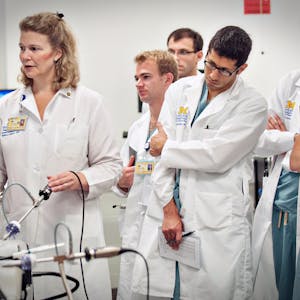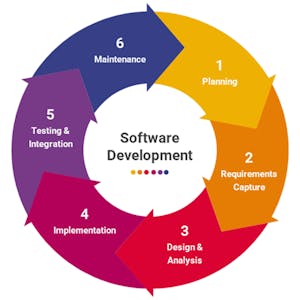Embedded Systems using C
About this Course
Embark on a comprehensive journey into Embedded Systems with this course. Module 1, \"Introduction to Embedded Systems,\" lays the foundation by exploring principles, architectures, and essential devices. In Module 2, \"Programming Fundamentals in C,\" participants master C programming essentials, including operators, storage classes, and flow control structures. Transitioning to Module 3, \"Advanced Concepts in C for Embedded Systems,\" participants delve into functions, arrays, pointers, and string manipulation techniques. By the course\'s conclusion, participants emerge equipped with the knowledge and skills necessary for confident navigation and programming in C for embedded systems development. Learning Outcomes: Upon completing this course, participants will: 1) Gain a solid understanding of Embedded Systems principles, architectures, and essential devices. 2) Master C programming essentials, including operators, storage classes, and flow control structures. 3) Dive deep into advanced C concepts crucial for embedded systems, such as functions, arrays, pointers, and string manipulation techniques. 4) Acquire practical skills through hands-on projects and exercises, enhancing their ability to develop embedded systems applications. 5) Develop confidence in their ability to design, program, and troubleshoot embedded systems using C. Target Learners: 1) Electrical Engineering or Computer Science Students: Those pursuing degrees in electrical engineering or computer science, particularly with an interest in hardware-software integration and low-level programming. 2) Embedded Systems Professionals: Engineers or professionals already working in the field of embedded systems who want to deepen their understanding of C programming for embedded applications and enhance their skill set. Pre-requisites: 1) Basic Programming Knowledge: Familiarity with programming concepts such as variables, loops, functions, and data structures. 2) Understanding of C Programming Language: Proficiency in the C programming language including syntax, data types, pointers, memory management, and basic file operations. 3) Fundamental Electronics Knowledge: Basic understanding of digital electronics, microcontrollers, and input/output (I/O) interfacing concepts. 4) Computer Architecture Basics: Knowledge of computer architecture fundamentals such as CPU, memory, input/output devices, and the concept of interrupts.Created by: EDUCBA

Related Online Courses
This course provides those involved in educating members of the health professions an asynchronous, interdisciplinary, and interactive way to obtain, expand, and improve their teaching skills.... more
Software development is not just about coding, it also involves the application of scientific knowledge and well-defined engineering techniques to produce maintainable, scalable, cost-effective and... more
In this course, we will delve into some business topics that illustrate how all company departments and teams need to work together to be successful. We will have some interesting topics learning... more
This is a master class in Customer Centricity. Professor Jagdish Sheth, 2020 Padma Bhushan Award winner for Literature and Education, guides you through proven strategies and practical steps for... more
This course focuses on the physics of the atmosphere and its consequences on speed and altitude measurements. At the end of this course, you will understand precisely the meaning of the speed and... more








